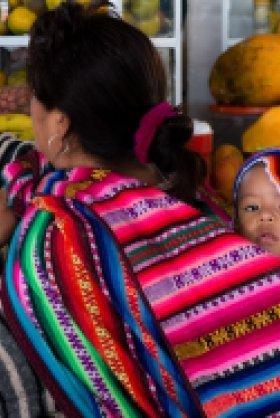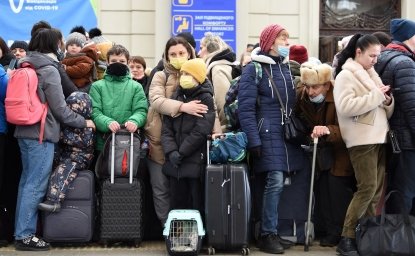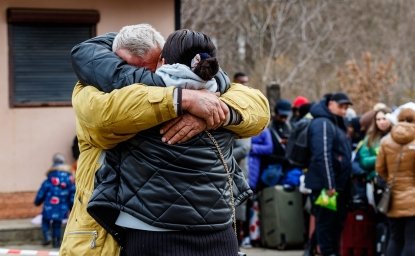The Prevalence of Violence against Women among Different Ethnic Groups in Peru


English | español
About half of Peruvian women between the ages of 15 and 49 have experienced some form of violence from their partners. Through a quantitative analysis, this report explores how violence rates against women vary by ethnic group and over time. Based on a nationally representative sample of more than 75,000 women surveyed between 2003 and 2012 and a review of the literature on ethnic classification in Peru, a typology is applied to measure ethnicity, based on women’s linguistic backgrounds, allowing for a consistent ethnic characterization throughout the period of analysis. In this typology, the first group is made up of women who speak an indigenous language at home and do not speak Spanish. A second group, called “historic” Spanish speakers, is composed of women who learned Spanish during childhood and still use it today, while the third group, called “recent” Spanish speakers, includes women who grew up speaking an indigenous language but now speak Spanish. The highest rate of all types of violence is found in this last group, with a much greater difference in sexual and severe physical violence. This is consistent with the predictions of the theoretical model developed in this study in which violence depends on the type of couple. The model finds that women who speak “recent” Spanish—and who have what is termed alower “outside option” than their “historic” Spanish-speaking male partners—experience greater violence. The study found that the gap in rates of violence against women among these three language groupings has remained constant over time despite an overall reduction in violence. This shows that current policies to provide care for victims and prevent violence against women are insufficient because the policies do not necessarily target groups with a greater risk of violence. This is unlike other areas of public health, where interventions are directly targeted at the most vulnerable populations.
Download the full report from the IDB's website

Latin America Program
The Wilson Center’s prestigious Latin America Program provides non-partisan expertise to a broad community of decision makers in the United States and Latin America on critical policy issues facing the Hemisphere. The Program provides insightful and actionable research for policymakers, private sector leaders, journalists, and public intellectuals in the United States and Latin America. To bridge the gap between scholarship and policy action, it fosters new inquiry, sponsors high-level public and private meetings among multiple stakeholders, and explores policy options to improve outcomes for citizens throughout the Americas. Drawing on the Wilson Center’s strength as the nation’s key non-partisan policy forum, the Program serves as a trusted source of analysis and a vital point of contact between the worlds of scholarship and action. Read more

Explore More
Browse Insights & Analysis
Russia’s Indigenous Communities and the War in Ukraine

Ukrainian Society Under Occupation: Hardship and Civic Resilience

